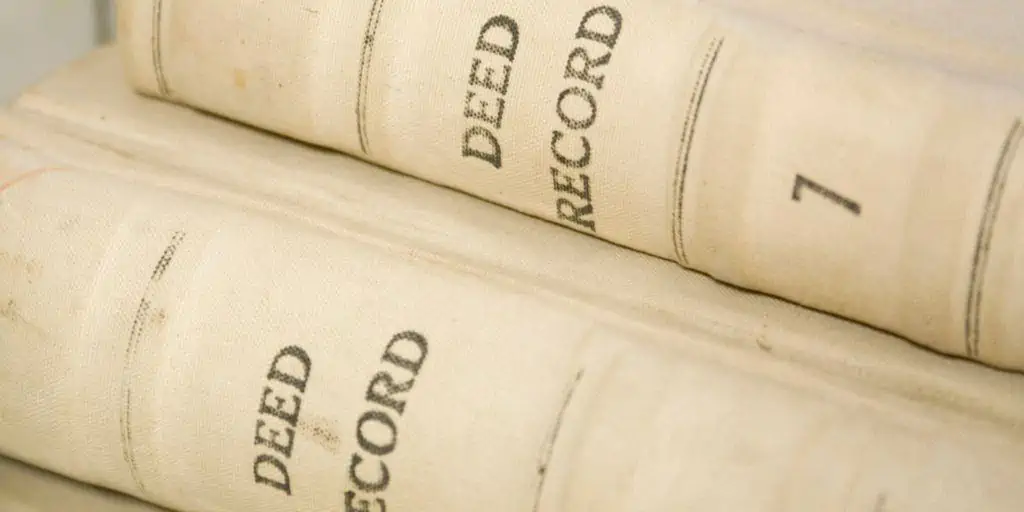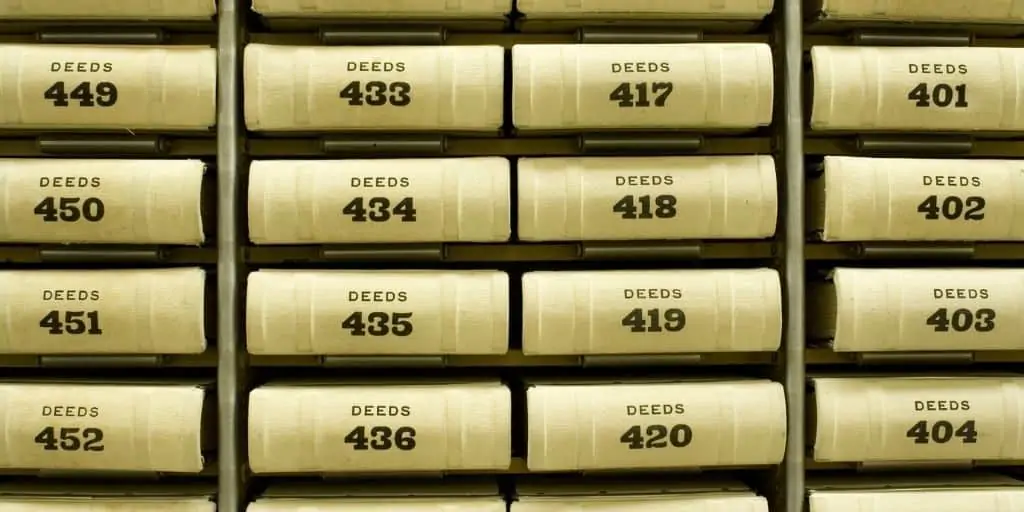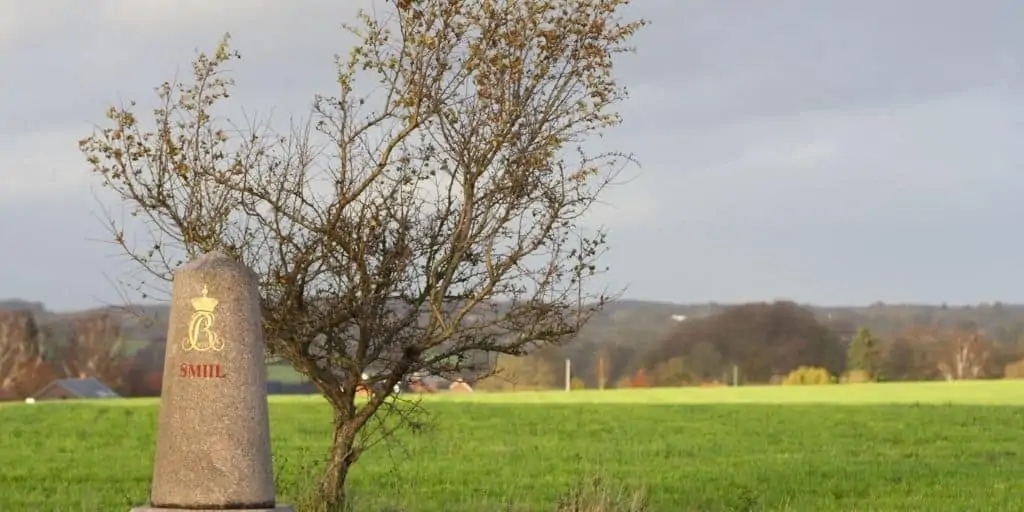What Is a Register of Deeds?
REtipster does not provide legal advice. The information in this article can be impacted by many unique variables. Always consult with a qualified legal professional before taking action.
What Does a Register of Deeds Do?
The Register of Deeds is a county office whose mission is to record, preserve, and manage legal documents that show property ownership, such as deeds[1]. It may sometimes be known as the Recorder of Deeds or the County Recorder.
Each county has a register of deeds maintained by a local government official.

The deeds office has several responsibilities, such as[2]:
- Keep public records and documents relating to property ownership.
- Maintain an index system of all recorded documents on properties.
- Verify document compliance, i.e., ensure certified copies meet all recording requirements.
- Furnish access to public records.
- Collect fees for documents filed in the county recorder’s office.
- Record financial statements relating to a particular property.
The Importance of the Register of Deeds
The register of deeds is important in a real estate transaction, specifically during a title search.
A title search[3] involves looking at public records, among others, to verify if the property can be legally transferred to a buyer. It uncovers the history of a piece of property, potentially showing if there is a cloud on title that may prevent the transfer of ownership.
One way to confirm property records is to check with the county’s register of deeds[4], which will provide access to a title company to the subject property’s deed. This is a legal document that transfers the title and ownership of a property.
Above all else, the deed shows everyone who has the rights and interests in that property. For buyers and sellers, recording a deed helps them confirm the chain of title. It informs other parties whether a property’s title is clear and unencumbered[5].
If the property’s title is clouded, the register of deeds can confirm which parties have filed a lien or claim against the property or if there are any other clouds on the title.
A register of deeds is also useful if the property in question has any outstanding obligations against it. For example, deeds may show liens that need to be settled and cleared before the property can be bought or sold.
How a Deed Is Recorded
To secure certainty of title, a person must record the deed in the county deeds office where the property is located. Individuals can record a deed by mail or in person. It usually takes two to six business days to record a deed received by mail. One can also present the deed to the recorder’s office and wait for it to be recorded[6].
Another option is to record a deed electronically[7]. E-recording minimizes time and costs by automating the examination of documents, the collection of fees, image retention, and data processing. Applicable fees and taxes will be charged for the recording of documents.
To be recorded, a document must meet state and local requirements. Each county register of deeds has its own technical and legal rules for recording a document.
Generally, these requirements include[8]:
- The document must be typed and legible to produce a photographic record.
- The document must have the name and address of the person requesting the recording.
- The document must include the legal description of the property. This may refer to a metes-and-bounds description. It may also include the property’s lot number, square number, subdivision, and street address.
- The document must include the names of the parties, printed or typed. Parties include grantors, grantees, and witnesses.
- All signatures must be original.
- All signatures must be acknowledged and notarized. Notarized documents include the notary seal, signature, name, and expiration date.
BY THE NUMBERS: It can take anywhere from two weeks to three months after closing for a deed to be properly recorded in the register of deeds.
Source: Nolo
What Happens If One Does Not Record a Deed?
Failure to record a deed after closing a deal means the county, the local taxing authority, and anyone in public conducting a title search will have no awareness of the new owner. As a result, property tax bills will not be sent to the correct party, lenders will not be able to lend to the proper owner, and for most intents and purposes, the new owner cannot prove that they legally own their purchased property[9].
In addition, because the transfer of ownership requires the title to be free and clear, a non-recorded deed means its “owner” cannot legally transfer it to another, nor will they be able to refinance a mortgage. For instance, some lenders deny a mortgage application if a deed is not recorded in the borrower’s name.
Failure to properly record a deed may also lead to issues in the property’s chain of title. An individual with a property with an unrecorded deed risks losing their home. This is because a person may sell that property to someone else and have the person record a deed with the recorder’s office. If the other person records the deed first, they will legally own the property.
Without a recorded deed on a property, a person may also have to deal with liens and judgments against the property because of the previous owner’s debts. Creditors may still file liens and judgments against the property of a debtor.
Finally, failure to record deed transfers may lead to issues with property taxes. Some states impose penalties for failing to record a deed.
Takeaways
- The county register of deeds is in charge of managing and storing deeds, which are legal documents that show property ownership.
- This office is important in real estate transactions, especially during a title search.
- Many inconveniences may stem from a failure to record a deed, ranging from fines to a buyer losing their entire property.
Sources
- Uradu, L. et al. (2021.) Register of Deeds. Investopedia. Retrieved from https://www.investopedia.com/terms/r/register-of-deeds.asp
- Legal Match. (n.d.) What Is a Registry of Deeds? Retrieved from https://www.legalmatch.com/law-library/article/what-is-a-registry-of-deeds.html
- Pulgini & Norton, LLP. (n.d.) Recording Deeds and Mortgages. Retrieved from https://www.pulgininorton.com/recording-deeds-and-mortgages.html
- Law offices of Stimmel, Stimmel, & Roeser. (n.d.) The Basics of Real Estate Title Deeds. Retrieved from https://www.stimmel-law.com/en/articles/basics-real-estate-title-deeds
- Martin, E. (2018.) What is “recording” when closing on a home purchase? The Mortgage Reports. Retrieved from https://themortgagereports.com/37838/closing-real-estate-recording-fees
- Turbo Wills. (n.d.) How to Transfer Real Property Into Your Trust. Retrieved from https://www.turbowills.com/how-to-record-a-deed
- Deeds.com. (n.d.) Recorder Information. Retrieved from https://www.deeds.com/recorder/
- Spengler, T. (2018.) Does a Real Estate Deed Have to Be Filed & Recorded? SFGate Home Guides. Retrieved from https://homeguides.sfgate.com/real-estate-deed-filed-recorded-48046.html
- LegalNature. (n.d.) What You Need to Know about Deeds and Property Transfer. Retrieved from https://www.legalnature.com/guides/what-you-need-to-know-about-deeds-and-property-transfer











